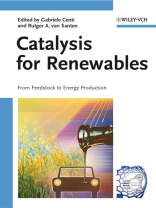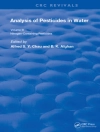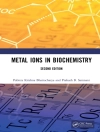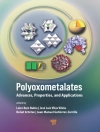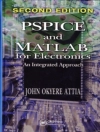With its focus on catalysis and addressing two very hot and timely topics with significant implications for our future lives, this will be a white book in the field.
The authority behind this practical work is the IDECAT Network of Excellence, and the authors here outline how the use of catalysis will promote the more extensive use of renewable feedstocks in chemical and energy production. They present the latest applications, their applicability and results, making this a ready reference for researchers and engineers working in catalysis, chemistry, and industrial processes wishing to analyze options, outlooks and opportunities in the field.
Jadual kandungan
Renewable Catalytic Technologies, a perspective
Biomass Conversion: An Introduction to Chemistry, Process and Economics
Process Options for the Catalytic Conversion of Renewables to Bioproducts
Industrial Development and Application of Biobassed Oleochemicals
Fine Chemicals from Renewables
Options for Catalysis in the Thermochemical Conversion of Biomass into Fuels
Thermal Biomass Conversion
Thermal Biomass Conversion and NOx Emissions in Grate Furnaces
Bioethanol
Conversion of Glycerol to Traffic Fuels
Catalytic Transformation of Glycerol
Catalytic Process for the Selective Epoxidation of Fatty Acids; More Environmentally Benign Routes
Integration of Biocatalysis with Chemocatalysis; Cascade Catalysis and Multi-step Conversions in Concert
Hydrogen Production and Fuel Cells as the Bridging Technologies Towards a Sustainable Energy System
Pathways to Clean and Green Hyrogen
Solar Energy as a Source of Hydrogen and for CO2 Conversion
Mengenai Pengarang
Gabriele Centi is full professor of industrial chemistry at the University of Messina and a Past President of the European Federation of Catalysis Societies and Coordinator of the Network of Excellence IDECAT. He co-directs the European Laboratory for Catalysis and Surface Science. His research activities are centered in the area of development of industrial heterogeneous catalysts for applications in the field of sustainable chemical processes, and environmental protection and clean energy. He also serves as member of panel committees of evaluation of various international institutes, and was visiting professor at various European Universities. He is a member of the Core Team which elaborates the European Technology Platform for Sustainable Chemistry.
Rutger Anthony van Santen gained his doctorate in theoretical chemistry in 1971, from the University of Leiden, joining Shell, Amsterdam as a research chemist the following year. In 1988 he became Professor of Catalysis at the Eindhoven University of Technology where he was promoted to scientific director in 1989. In 1991 he became director of the Netherlands Institute of Research in Catalysis, and in 2005 he was made Royal Netherlands Academy of Science and Arts Professor. He is a member of the Royal Dutch Academy of Arts and Sciences, Dutch Academy of Engineering and is a Knight in the order of the Dutch Lion. He has been active in many national and international catalysis research programs and organizations, and has been awarded several awards and visiting professorships. His main research interest is the molecular mechanistic understanding of catalytic reactions.
